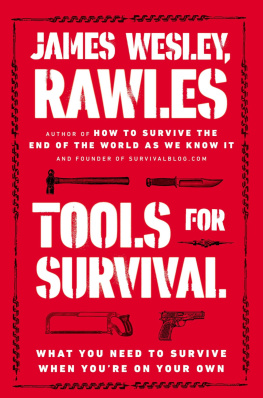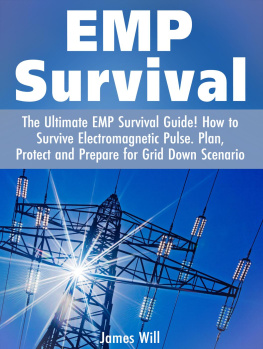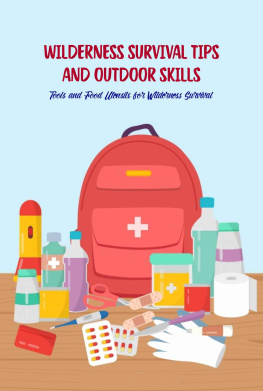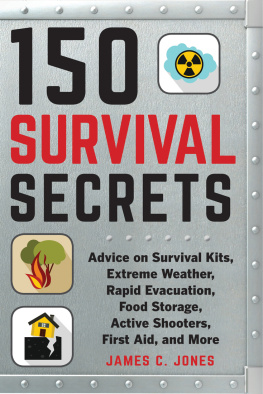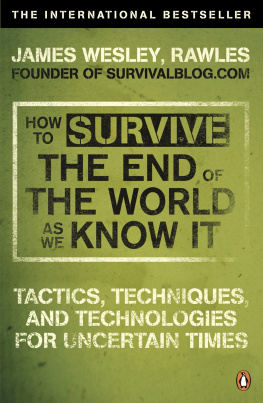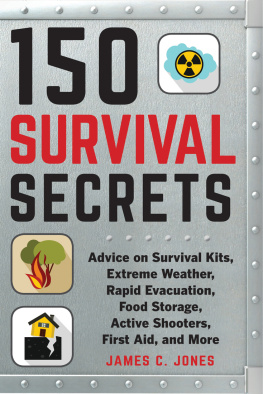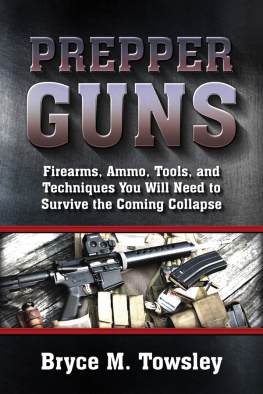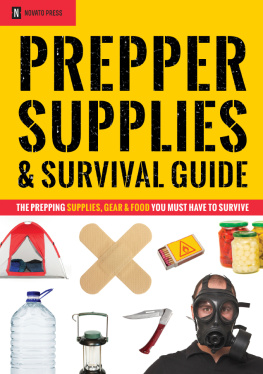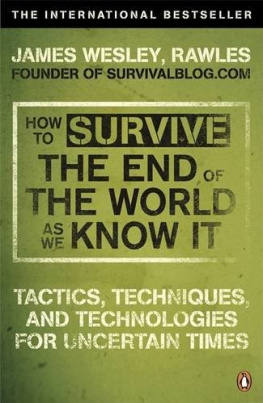A ll rights reserved. Any unauthorized duplication in whole or in part or dissemination of this edition by any means (including but not limited to photocopies, electronic bulletin boards, and other Internet sources) will be prosecuted to the fullest extent of the law. The making and/or possession of the some of the devices and formulas described in this book are possibly illegal in some jurisdictions (for example, making your own welding thermite). Even the mere possession of the uncombined components might be construed as criminal intent. Consult your state and local laws! If you make any of these devices, you accept sole responsibility for their possession and use. You are also responsible for your own stupidity and/or carelessness. This information is intended for educational purposes only. The author and Penguin Books shall have neither liability nor responsibility to any citizen, person, or entity with respect to any loss or damage caused, or alleged to be caused, directly or indirectly by the information contained in this book.
Always wear the appropriate safety gear. For most of the shop processes described in this book, goggles, or at least safety glasses with side guards, are a must. Sturdy boots and a shop apron are highly recommended. Never work alone around fire and always keep a big fire extinguisher of the appropriate type handy.
Because I foresee the possibility of a grid down world, in this book I emphasize nineteenth-century tools and technology that dont require electricity. When using tools designed in that era or when referring to nineteenth- and early twentieth-century publications (and reprints thereof), keep in mind that the safety standards in those days were considerably more lax than those used today. So be very careful around harmful or explosive vapors, unshielded blades, unguarded drive belts and drive chains, flammables, poisonous and carcinogenic chemicals, and so forth.
FOREWORD
S tarting with primitive stone and bone tools, hollowed-out gourds, bone needles and fishhooks, clubs, and arrows and spears, mankind has been fabricating tools for survival. It is our tools, combined with the skills and knowledge to use them, that enable humans to build and maintain a highly complex society that feeds, clothes, shelters, sustains, and entertains the more than seven billion people who populate planet Eartha population that is several times what Earth could support were we all hunter-gatherers. In recent times, increasingly complex tools and technologies offer us nearly instant access to a dizzying variety of gadgets, clothing, and foodstuffs, along with a wide array of medical services and pharmaceutical drugs that enable us to attend to our short- and long-term medical needs. However, when disaster strikes, access to this seemingly unlimited supply of modern tools, gadgets, pharmaceuticals, and foodstuffs could evaporate in the blink of an eye. If a major calamity of significant scope and duration casts a shadow upon your portion of the world, causing serious disruptions in the electric power grid, supply chains, and central services lasting weeks or months, the tools, supplies, and skill set that you have on hand would be of utmost importance for the safety, comfort, and survival of yourself, your family, and your friends.
Just a few decades ago, before the advent of just-in-time deliveries precisely coordinated by the computerized flow of information across the World Wide Web, stores in major cities across America stocked their consumable goods nearby in giant warehouses, where roughly a months supply of food and other critical items were stored at all times. Not so anymore. Just-in-time deliveries have allowed suppliers to cut costs by reducing local inventories of most consumable stocks to a mere three-day supply. Hurricane Katrina and the Indian Ocean tsunami showed us that when a major disaster covers a broad area, affecting millions of people, governments and local authorities are ineffective and overwhelmed, taking weeks or months to resolve long-lasting grid-down situations coupled with the resulting cascading failures of supply chains and central services that require grid power for their daily operation. In situations when the grid is down and central services have failed for a significant period of time, you are on what is referred to in prepping/survival circles as YOYO time (Youre on Your Own). It is during YOYO time that access to quality survival tools and supplies, along with the knowledge and skills for their proper usage, can make the difference between life and death, or in less critical situations the difference between living in relative comfort and ease and living in extreme distress.
There are many different events, some of them man-made and others due to natural causes, that can cause disruptions far larger in scope and duration than those wrought by Hurricane Katrina. For example, a well-coordinated terrorist attack on the U.S. electric power grid, or a naturally occurring super solar storm, or the detonation of a nuclear device at an altitude high above the continental U.S. with its resulting powerful electromagnetic pulse (EMP) could cripple the U.S. power grid for an extended period, causing the collapse of our world as we know it for a period lasting several months to many years. In many communities hard hit by Katrina, it was several weeks and in some cases months before basic services like phone service and electrical power were restored. Eight years later, there are entire neighborhoods that have not yet recovered. When the grid goes down, most cell phone towers will exhaust their backup battery power after three hours. Within three days, most central telephone switching stations, hospitals, and police stations will run out of backup power. Without power, air conditioners, elevators, and the Internet grind to a halt. Without power, there is no water treatment, no gasoline pumping, no bank machine access, and the sewage pumps stop working, causing city sewers to back up and flood low-lying streets. Without power, food spoils and rots in refrigerators and freezers, both at home and in the markets. Without power, where will millions of people in Americas cities buy groceries, obtain drinking water, and defecate?
Solar storms of a magnitude that would cause catastrophic damage to our electric power grid are naturally recurring events, and scientific evidence indicates they tend to strike our planet an average of once every seventy-five to a hundred years. Since the last one of a magnitude that would collapse todays modern electrical grid took place ninety-three years ago (the Great Geomagnetic Storm of May 1921), statistically we are due for the next one. Odds are that grid collapse due to an extreme solar storm will take place sometime in the not-too-distant future (scientists predict a one-in-eight chance per decade for being struck by a geomagnetic storm of this magnitude), unless another event causes grid collapse first, or our government/private industry spend the roughly two billion dollars it would cost to install the devices to protect our grid from catastrophic failure in the event of either an extreme solar storm or an EMP attack.

